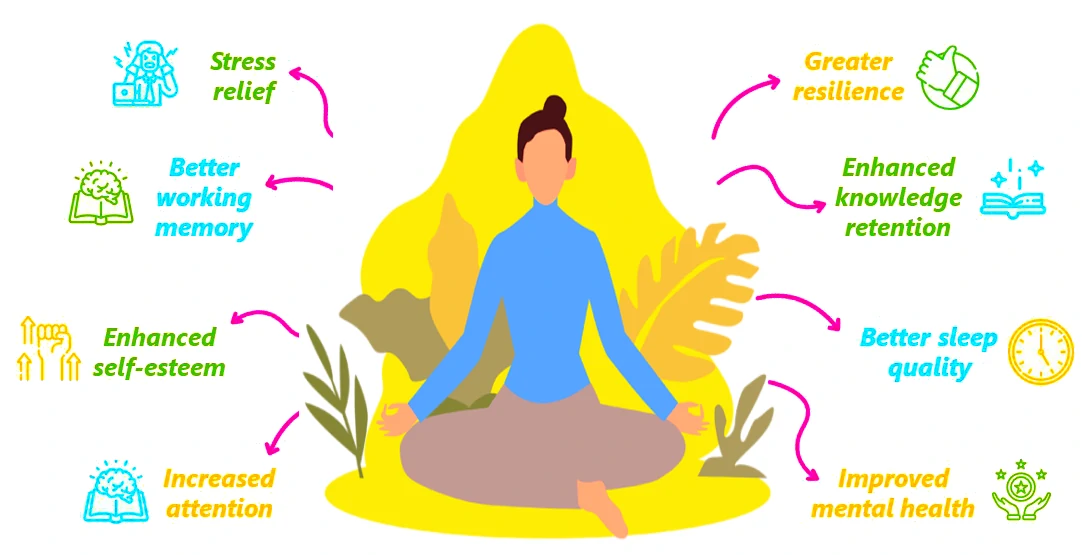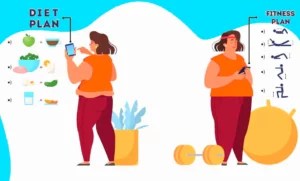how to meditate properly ? Meditation can offer a wide range of physical, mental, health, calm, serenity and better concentration , Meditation is a practice that can be approached in various ways.
Meditation helps with stress in the moment, If you don’t know how to meditate, don’t worry. try new things and explore how to be happier at home and how to be happy.

how to meditate properly ?
Here are some of the potential benefits of regular meditation practice:
- Find a Quiet Space: Choose a quiet and comfortable place where you won’t be easily disturbed. Sit or lie down in a relaxed position.
- Get Comfortable: Sit or lie down in a comfortable position. You can use a cushion or chair if you’re sitting. Keep your back straight to maintain alertness.
- Focus on Your Breath: Close your eyes and begin to pay attention to your breath. Notice the sensation of each inhale and exhale. You can focus on your breath entering and leaving your nostrils or the rise and fall of your chest or abdomen.
- Let Go of Distractions: Thoughts will naturally arise. Instead of getting frustrated, acknowledge the thoughts and gently bring your focus back to your breath. Imagine your thoughts as clouds passing by.
- Mindful Breathing: Practice mindful breathing by counting your breaths or simply being aware of each breath. This helps anchor your attention and keeps your mind from wandering.
- Body Scan (Optional): You can also do a body scan, bringing your attention to different parts of your body and noticing any tension. Relax each area as you go.
- Set Realistic Expectations: Understand that your mind will wander, and that’s normal. The goal is not to eliminate thoughts but to bring your focus back gently and consistently.
- Start with Short Sessions: If you’re new to meditation, start with shorter sessions, perhaps 5-10 minutes, and gradually extend the duration as you become more comfortable.
- Consistency is Key: Regular practice is more important than the duration of each session. Try to establish a routine that works for you, whether it’s daily or a few times a week.
- Explore Different Techniques: There are various meditation techniques, such as mindfulness, loving-kindness (Metta), transcendental meditation, and more. Experiment with different styles to find what resonates best with you.

The Many Benefits of Meditation
- Stress Reduction: Meditation is known to be effective in reducing stress by promoting relaxation and helping individuals manage their reactions to stressors.
- Improved Focus and Concentration: Regular meditation can enhance attention and concentration, leading to better focus in daily activities and tasks.
- Emotional Well-being: Meditation may contribute to emotional well-being by fostering positive emotions, reducing symptoms of anxiety and depression, and promoting overall mental health.
- Better Sleep: Many people experience improved sleep quality through meditation. The relaxation and mindfulness promoted by meditation can help alleviate insomnia and promote restful sleep.
- Mind-Body Connection: Meditation emphasizes the connection between the mind and body, promoting holistic well-being. This integration can lead to improved physical health.
- Lower Blood Pressure: Some studies suggest that regular meditation may contribute to lower blood pressure, potentially reducing the risk of cardiovascular problems.
- Pain Management: Meditation has been shown to be effective in managing chronic pain by altering the perception of pain and improving pain tolerance.
- Increased Compassion and Empathy: Certain meditation practices, such as loving-kindness meditation, can enhance feelings of compassion and empathy towards oneself and others.
- Strengthened Resilience: Meditation helps individuals build resilience by developing coping mechanisms and a more balanced perspective on life’s challenges.
- Mindfulness Skills: Meditation often involves mindfulness, which is the practice of being fully present in the moment. Developing mindfulness skills can lead to a more grounded and mindful approach to daily life.
- Improved Memory: Some research suggests that meditation may have positive effects on memory and cognitive function.
Remember that meditation is a personal practice, and there’s no one-size-fits-all approach. Feel free to adapt these guidelines to suit your preferences and needs. Over time, you may find that meditation helps reduce stress, improves focus, and enhances overall well-being.
It’s important to note that individual experiences with meditation can vary, and the benefits may take time to become apparent. Starting with short, regular sessions and gradually increasing the duration can be a helpful approach for beginners. It’s also advisable to explore different meditation techniques to find what works best for you.




